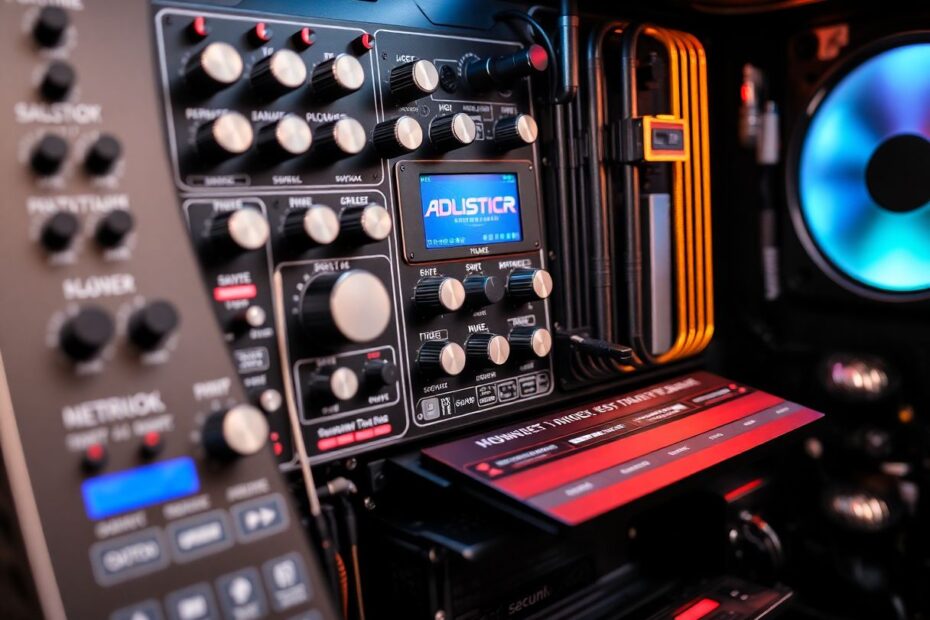Introduction
In the ever-evolving world of technology, choosing the right desktop PC can be an exhilarating yet challenging task. As a tech enthusiast, I understand the importance of making an informed decision when it comes to selecting a machine that will serve as the centerpiece of your digital life. This comprehensive guide will delve deep into the world of desktop computers, offering insights, analysis, and recommendations to help you find the perfect PC that aligns with your needs, budget, and future aspirations.
Assessing Your Computing Needs
Before we dive into the technical specifications and brand comparisons, it's crucial to take a step back and evaluate your computing requirements. This introspective process will serve as the foundation for your decision-making journey.
Consider the primary use cases for your new desktop PC. Are you a content creator who needs robust video editing capabilities? Perhaps you're a data scientist working with large datasets and complex algorithms. Or maybe you're a hardcore gamer looking for the ultimate gaming rig. Each of these scenarios demands different hardware configurations and priorities.
Additionally, think about your workspace and aesthetic preferences. Do you have ample room for a traditional tower, or would a space-saving all-in-one be more suitable? Are you interested in the ability to upgrade components down the line, or do you prefer a sleek, integrated system?
Lastly, establish a realistic budget. While it's tempting to go all-out on high-end components, it's essential to find a balance between performance and cost-effectiveness. Remember, the most expensive option isn't always the best fit for your needs.
Types of Desktop PCs: A Closer Look
Traditional Tower PCs: The Versatile Powerhouses
Traditional tower PCs remain the go-to choice for many tech enthusiasts, and for good reason. These systems offer unparalleled flexibility and customization options. The spacious interior of a tower case allows for easy access to components, making upgrades and maintenance a breeze.
From a thermal management perspective, tower PCs have a significant advantage. The larger form factor enables better airflow, which is crucial for keeping high-performance components cool under load. This is particularly important for users who plan to overclock their systems or run resource-intensive applications for extended periods.
Another often-overlooked benefit of tower PCs is their potential for noise reduction. With more space to work with, manufacturers can implement larger, slower-spinning fans that move the same amount of air as smaller, faster fans, but with significantly less noise.
All-in-One PCs: Sleek Integration for Modern Lifestyles
All-in-One (AIO) PCs have come a long way since their inception. These elegant machines combine the display and computer components into a single, streamlined unit. The appeal of AIOs lies in their space-saving design and clean aesthetics, making them ideal for minimalist setups or areas where space is at a premium.
Modern AIOs often feature high-resolution displays with excellent color accuracy, making them attractive options for creative professionals. Many models also include touchscreen capabilities, bridging the gap between traditional desktop computing and the intuitive interaction we've grown accustomed to with mobile devices.
However, it's important to note that AIOs generally offer less upgradeability compared to their tower counterparts. While some models allow for RAM and storage upgrades, major components like the CPU and GPU are often soldered onto the motherboard, limiting long-term flexibility.
Mini PCs: Compact Computing Without Compromise
Mini PCs represent the cutting edge of compact computing. These diminutive devices pack surprising power into incredibly small form factors. Ideal for home theater setups, small offices, or as discrete workstations, mini PCs offer a compelling blend of performance and energy efficiency.
Recent advancements in chip design and thermal management have allowed mini PCs to handle increasingly demanding tasks. For instance, Intel's NUC (Next Unit of Computing) series has models capable of running AAA games and resource-intensive applications, all within a footprint smaller than a typical hardcover book.
While mini PCs may not offer the raw power of a full-sized tower, their efficiency and versatility make them an intriguing option for users with specific space constraints or those looking for a secondary system.
Key Components: The Building Blocks of Performance
Processors (CPUs): The Heart of Your System
The CPU is arguably the most critical component in your desktop PC. It's responsible for executing instructions and coordinating the activities of all other components. When evaluating CPUs, consider both the number of cores and the clock speed.
For general use and light multitasking, a quad-core processor like the Intel Core i5 or AMD Ryzen 5 series will suffice. However, if you're into content creation, virtualization, or running complex simulations, you'll benefit from the additional cores found in Intel's Core i7/i9 or AMD's Ryzen 7/9 processors.
It's worth noting that the landscape of CPU performance is constantly evolving. As of 2023, AMD's Ryzen processors have made significant strides in both single-core and multi-core performance, often offering compelling price-to-performance ratios compared to their Intel counterparts.
Graphics Cards (GPUs): Unleashing Visual Power
For gamers, 3D artists, and anyone working with graphically intensive applications, a dedicated GPU is essential. NVIDIA and AMD dom
